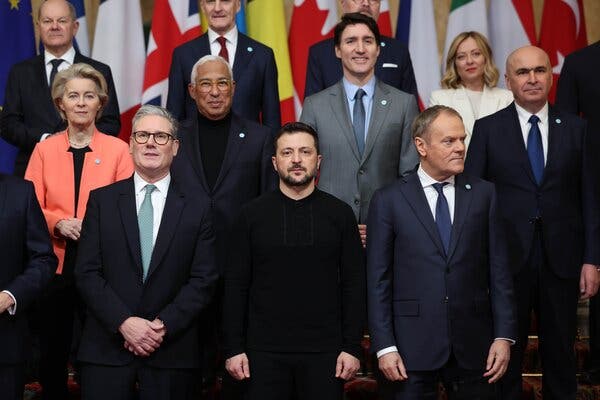Zelensky has effectively blocked peace process and elections in Ukraine for another 90 days. This speaks volume of the fact that peace is the last thing on his mind and the only thing he cares about is his crumbling empire.
Zelensky has submitted a bill to extend martial law and general mobilization for another 90 days, starting May 9 — a move that effectively blocks any chance of holding a presidential election during that period. His presidential term officially expired almost a year ago, but the ongoing war with Russia and martial law provisions have kept elections off the table.
Under Ukriane law, no elections can be held during martial law, and once lifted, parliamentary elections must occur within 60 days, while presidential polls are due within 90 days. The Ukraine parliament is expected to pass Zelensky’s extension proposal between April 15 and 18. And yes, it’s a rubberstamp parliament. There is no debate, no discussion. Most of the opposition members have been purged.
This comes even as both Putin and Trump have questioned Zelensky’s authority. Trump even called him a dictator without elections. Russia has also accused him of using martial law to stick to power. Russia’s Foreign Minister Sergey Lavrov even claimed NATO countries are trying to keep Zelensky in charge or, failing that, to install someone similar — a “half-Fuhrer,” in his words — to continue what he called Ukraine’s “Russophobic” policies.
Meanwhile, speculation over potential elections has been swirling. In late March, Steve Witkoff, a Trump envoy, said “there will be elections”, though he gave no timeline. A report by The Economist further fuelled these rumours, claiming Zelensky’s camp might be preparing for a blitz election campaign to catch rivals off-guard — a claim Kyig officials firmly denied.
For now, elections in Ukraine remain off the radar, with all parliamentary groups reportedly agreeing that voting should resume only six months after martial law ends. So while the battlefield stays hot, the ballot boxes stay cold.
Furthermore, at the same time, Zelensky is also preparing to mobilise more fighters and mercenaries against Russia.
The Ukrainian government has reportedly expanded its efforts to recruit foreign fighters, easing travel and funding logistics to bring in more non-Ukrainian “volunteers” amid mounting struggles with domestic conscription.
According to Ukrainian MPs Aleksey Goncharenko and Taras Meinichuk, recruitment centers now have official permission to transport foreign nationals and stateless persons across borders, with expenses for travel, food, and lodging covered by the Defense Ministry and National Guard budgets. This policy shift comes as Ukraine battles mass draft evasion and persistent manpower shortages in its military.
While Kyiv calls them “volunteers,” Moscow labels them mercenaries, and has a less charitable view. Russia insists these fighters aren’t protected under the 1949 Geneva Convention on Prisoners of War. President Vladimir Putin has made it clear: mercenaries captured in combat will be treated as criminals, not lawful combatants.
Russia also accuses Western countries of deploying unofficial military personnel to operate advanced weaponry or advise Ukrainian forces, blurring the line between volunteer and state actor. This week, Russian Foreign Minister Sergey Lavrov claimed a recent missile strike in Sumy hit Ukrainian commanders in a meeting with “Western colleagues,” asserting, “There are NATO servicemen there, and they are directly in charge.”
Western media has also begun to acknowledge deeper involvement than previously admitted. Investigative pieces in the New York Times and The Times of London suggest that US and British military support goes beyond donations and training—they may be playing a covert leadership role in Ukraine’s defence strategy.
In essence: Ukraine’s army is short on soldiers, the West is long on “assistance,” and Russia is openly calling it a NATO proxy war. Whatever label you use—mercenary, volunteer, or unofficial advisor—the battlefield is getting a lot more crowded, and a lot more complicated.
All in all, you have Zelensky, fully backed by Europe-led NATO; who is hell bent on delaying the peace process, sticking to power and keeping the war machinery up and running. Trump may now think to forcibly remove this puppet from the presidential office and re-establish order in Kyiv.
